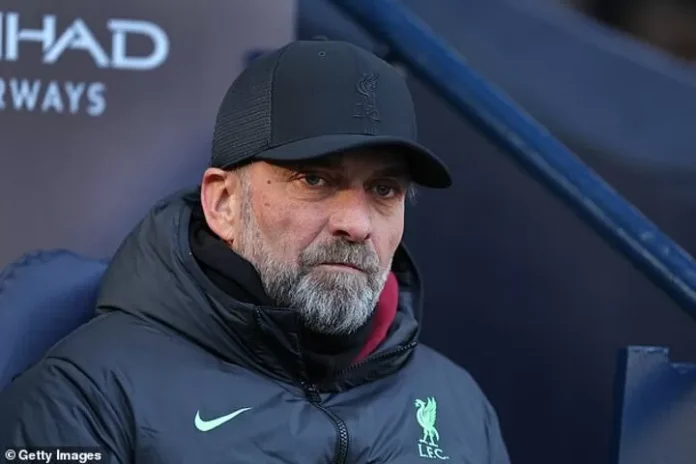When Jurgen Klopp leaves Liverpool at the conclusion of the season, Melissa Reddy evaluates all the leading contenders to succeed him. Ange Postecoglou, Thomas Frank, Roberto De Zerbi, and Xabi Alonso seem to be the front-runners.
It is important to recognize the magnitude of Liverpool’s challenge in selecting their next manager.
The upper echelons of Liverpool are fully aware that there will never be another Jurgen Klopp. A “lite” version of him, someone who can play almost the same style, someone who can develop skill somewhat well, or someone who the raw data indicates is the closest thing, is not something they are interested in either.
Liverpool is aware that finding the ideal replacement manager for the team’s future does not mean finding Klopp 2.0. That would be a pointless, unsuccessful, and just absurd task.
However, they also know that the next manager must have a strong bond with the team’s supporters, the city, and the club culture. There are many competent managers out there, as one former employee who worked closely with Klopp and had access to databases of analysis put it. Few competent Liverpool managers exist.”
How therefore does the club narrow down its candidate pool? Although there have been reliable reports stating that Liverpool will employ a data-driven strategy, this has been interpreted incorrectly as finding a statistical match in terms of playing style and configuration.
Underlying metrics, such as those that quantify overperformance and impact on a club, will direct the process but not make the final decision. Beyond the numbers, Liverpool needs to find a player that the team, staff, and fans want to support and go on a new adventure with.
However, one factor contributing to Liverpool’s challenge’s seismic nature is Klopp’s insistence that his own tenure with the team wouldn’t stop when he left.
In the summer of 2016, Klopp disclosed that he had already mentally drawn up what he wanted Liverpool to look and feel like when he left the team, sitting on a private terrace at the Four Seasons hotel in East Palo Alto.
Having been appointed in October, it was the manager’s first pre-season in charge. He stopped talking midway through, talking about pressing triggers and how important it is for midfielders to grasp orientation. The topic of discussion was overly narrowed to the here and now, tactical specifics, and how to achieve outcomes.
“Football is all about pressure and the next game, the next game, the next game,” Klopp said in an exclusive chat with this writer.
“You have a lot of power when you sit in the main chair as I do, but you also bear all of the responsibility.
“And even after you depart, accountability means it never ends for me. You must establish something that will truly serve as a yardstick for you even after you are gone.
“Construct this, enhance that. I’m interested in everything about the club, and when the time comes for me to leave, I don’t want people to continue to celebrate me; instead, I just want them to continue to reap the rewards of having me as manager.”
When Klopp says an emotional farewell to Liverpool in three months, there will be a plethora of column inches, TV segments, audio hours, and social media posts that attempt to quantify his legacy.
Nobody will be able to adequately express it since Fenway Sports Group hired a guy who, well, got it instead of merely an outstanding, transformational management. Someone who sincerely cares about the club’s well-being, the vitality of the fan community, the atmosphere of the location, and the harmony that results from uniting everyone and everything in a shared experience.
For Klopp, football has never been just a business; it has never been about a score or a series of 90-minute matches played over the course of a season. Not even silverware is at issue. “I know football is about success,” he said, “but it’s also worth having a situation in 20 years when you can look back and think over the great times you had together in this development.”
Speaking volumes, FSG president Mike Gordon described Klopp as one of the ownership’s “greatest blessings” after it was revealed he will be leaving the team at the conclusion of the season. In addition, they are “hugely saddened to lose not just a manager of such calibre, but a person and leader for whom we have enormous respect, gratitude and affection.”
But the lack of a sporting director adds even more complexity to an already difficult assignment. FSG’s attempt to reunite Michael Edwards with the team in a more expansive capacity to spearhead Liverpool’s restructuring was unsuccessful.
The team is aware that the manager and sports director working together is essential to both success and a positive football atmosphere.
Relying on data from Will Spearman’s research department, Gordon is in charge of both of the big hiring.
Liverpool always evaluates players and up-and-coming managers.
Large dossiers on possible successors to the German will already be compiled; the one on Klopp from 2015 was sixty pages long.
After carefully examining the facts and evaluating the backgrounds of a few potential candidates, manager of Bayer Leverkusen Xabi Alonso stands out as the best choice. The 42-year-old is the “standout” member of the younger dugout generation, according to Klopp himself.











